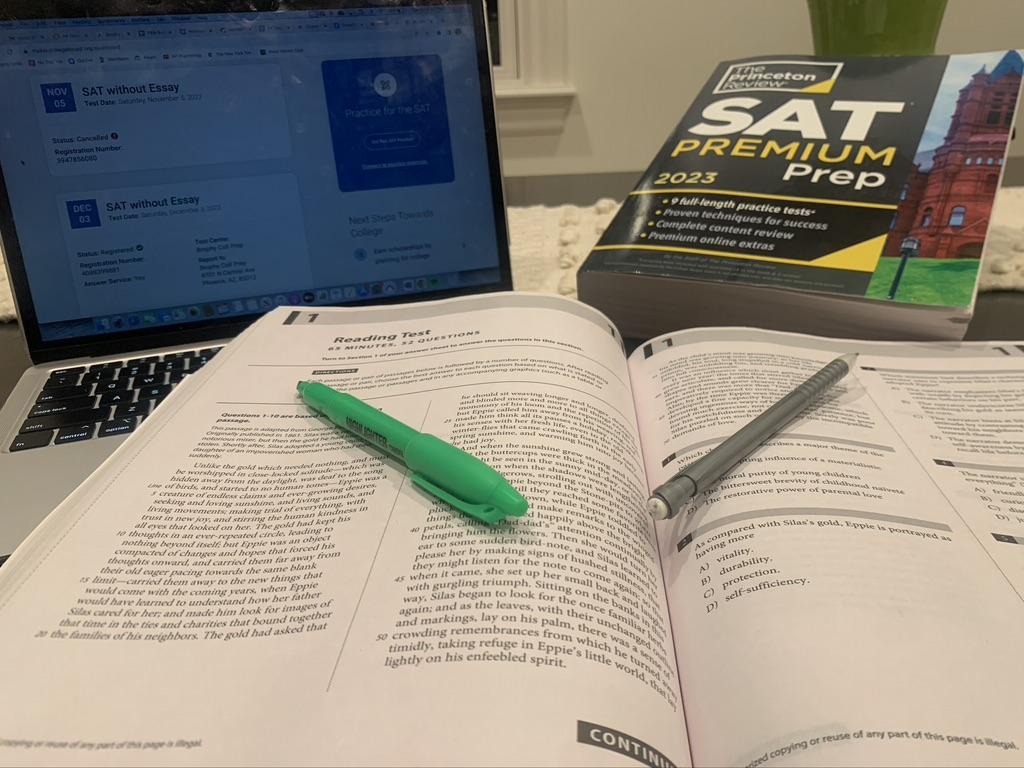Photo by Alex Gross ’24
In 2020, the International Center for Academic Integrity, a committee designed to advance academic integrity within education, surveyed 70,000 high school students with this simple question: Have you ever cheated on an assignment in any way, shape, or form? The survey concluded that over 95% of surveyed students admitted to having cheated.
At the end of the 2021 school year, Brophy found that over 100 students in math classes had organized a cheating ring where they would pay other students to do their assignments and tests. These students’ actions were made public nationwide, and Brophy’s name was directly associated with academic dishonesty and a lack of integrity.
Cheating is a pandemic that affects schools all across the world, and Brophy is just one of the many that have been ravaged by cheating scandals over the last few years. The COVID-19 virus and ensuing lockdowns further placed stress on students to prioritize grades ahead of actual learning.
They felt the need to take advantage of the online set-up and look up answers on websites such photomath or quizlet. When the pandemic was over, this act of cheating was normalized in the minds of students that carried over when schools went back to normal.
According to the University of Buffalo, cheating is a result of six things: an overabundance of stress, a fear of failure, unmonitored environments, wanting to help others, poor time management and peer pressure.
It is our belief that most of these results, while agreeing that not all, come directly from the educators who set unreasonably high expectations on students, thus perpetuating a stressful environment.
Teachers will pile on hours of homework a night using excuses such as “It’s an honors class” as a way to justify their reasoning. However, all this does is induce stress and create the need to survive a class rather than learn in it.
Students who fear what could happen if they fail tend to lean towards dishonesty in their work, using classmates for answers or help, and cheating on tests as a way to “survive”.
Furthermore, an example of an environment that fosters cheating is when teachers sit passively at their desks while students blatantly cheat without their knowledge. The lack of awareness and effort put into moderating tests and quizzes has opened up a loophole for students.
However, during a speech on orientation day, given by Mr. Mica Mulloy ’99, students found out that there was a new requirement for teachers to walk around the classroom during exams being taken on lockdown browser, a website designed to limit cheating.
This inforces the point that teachers need to be more active in their classroom and impose reasonable expectations on students without applying too much pressure that would break the work ethic of motivated students and put them in a position that makes them cheat.
With these new rules in place, there is an expectation on the behalf of teachers for students to be honest in their work, but the lack of proper repercussions continues to foster an environment of dishonesty. The problem needs to be treated before it becomes an epidemic infecting every classroom.
The only way to do that is if administrators and schools as a whole address specific groups of students who cheat instead of enforcing broad punishments. Broad punitive action only fuels animosity towards the administrators creating a feeling of opposition instead of support.
Therefore, if teachers and administrators do their part to limit academic dishonesty, students need to learn to resist the temptation of cheating and understand the implications that come with years of cheating. Those who cheat are cheating themselves out of the experience that Brophy is trying to provide, and they are throwing away their ability to learn in the future.
This includes the ability to manage time well, avoid peer pressure, and the ability to know when is an appropriate time to help a classmate out. These happen to be the last three reasons given by University of Buffalo as to why there is cheating within schools.
While we understand that certain groups of people need to do better, we hold true to the belief that the cause cannot be held to one person.
And although there were small amounts of detail released to the student body about what occurred last year, Brophy has acknowledged the need for change and has set new protocols in place that seem to work for now. But are these changes going to create a systemic change, or are they merely a temporary fix?




















